In this review, I’m going to share my analysis and evaluation from hands-on experience with Rackspace Technology. But first, if you’re just beginning your search for the best cloud service, check out my picks of the best cloud services.
You probably already know Rackspace Technology is among the most popular cloud services out there, but you need to better understand what’s good and not so good about it. This in-depth Rackspace Technology review will walk you through the pros and cons, features, and functionality to help guide you to better understand its capabilities and suitability for your scenario.
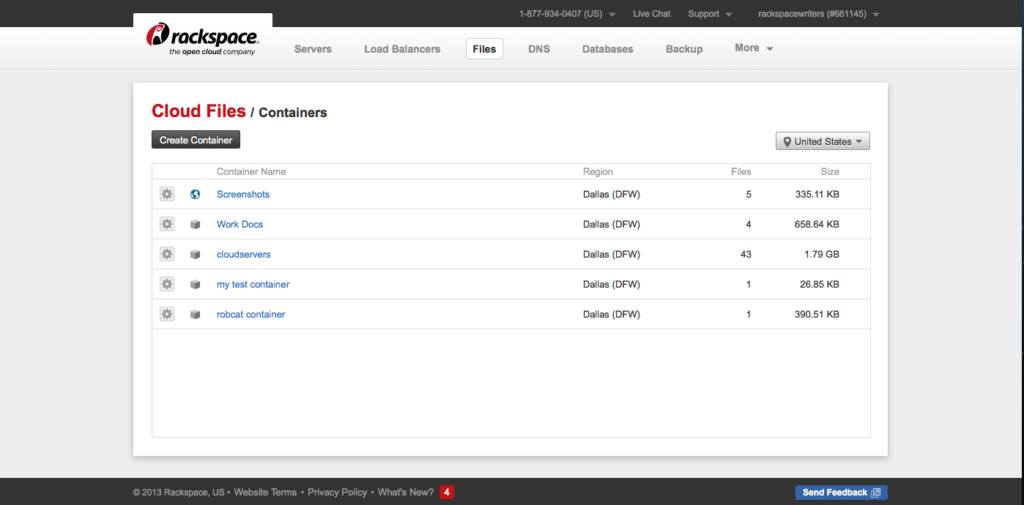
Summary: Rackspace Technology
Rackspace Technology is a leading provider of managed cloud services, known for its focus on multi-cloud solutions and hands-on support. It’s commonly used by IT leaders, cloud architects, and DevOps professionals who rely on it to manage complex cloud environments and optimize infrastructure performance. The software helps businesses by providing tailored cloud strategies, enabling faster innovation, and reducing operational overhead.
Rackspace Technology addresses common pain points like managing multi-cloud environments, optimizing cloud costs, and ensuring security and compliance. Its best features are its 24/7 customer support, flexible multi-cloud options, and advanced security management tools.
Rackspace Technology Pros
- Tailored Support: Rackspace Technology provides dedicated, hands-on support that helps businesses manage complex cloud environments efficiently.
- Multi-Cloud Flexibility: Its multi-cloud solutions allow businesses to mix and match providers based on specific needs, ensuring greater flexibility.
- Security Expertise: Rackspace Technology offers strong security management, helping businesses navigate compliance and protect sensitive data centers.
Rackspace Technology Cons
- Limited Customization: Some aspects of its managed services can be rigid, limiting customization for unique business needs.
- Slower Innovation Cycle: Compared to some cloud-native competitors, Rackspace Technology's pace of introducing new features can be slower.
- Complex Pricing Model: The structure of Rackspace Technology’s service plans can be confusing and may impact decision-making.
Rackspace Technology Expert Opinion
In my opinion, Rackspace Technology is a solid choice for businesses that need hands-on support and a tailored approach to cloud management. While it excels in providing multi-cloud flexibility and strong security measures, it lags behind cloud-native platforms like AWS or Google Cloud in terms of innovation speed and customization options.
Rackspace Technology is compatible with Windows, Linux, and Mac. It offers a more guided experience compared to competitors. However, its service structure can be complex, which may be a drawback for businesses looking for straightforward solutions.
Overall, Rackspace Technology is best suited for mid-to-large enterprises with multi-cloud environments that need expert guidance in managing and securing their infrastructure. On the other hand, it may not be the best fit for startups or highly Agile teams that demand faster iteration, fanatical support, and simpler solutions.
Why Trust Our Software Reviews
We’ve been testing and reviewing cloud services since 2020. As customers experience ourselves, we know how critical and difficult it is to make the right decision when selecting software.
We invest in deep research to help our audience make better software purchasing decisions. We’ve tested more than 2,000 tools for different customers experience use cases and written over 1,000 comprehensive software reviews. Learn how we stay transparent & our software review methodology.
-

Docker
Visit WebsiteThis is an aggregated rating for this tool including ratings from Crozdesk users and ratings from other sites.4.6 -

Pulumi
Visit WebsiteThis is an aggregated rating for this tool including ratings from Crozdesk users and ratings from other sites.4.8 -

GitHub Actions
Visit Website
Are You a Good Fit for Rackspace Technology?
Who Would Be a Good Fit for Rackspace Technology?
Mid-to-large enterprises with complex multi-cloud environments would benefit most from Rackspace Technology. The software excels in providing tailored support and expert management for businesses that need to navigate multiple cloud hosting providers while maintaining security and compliance. As such, companies that require hands-on guidance and strong security management will find Rackspace Technology particularly useful, especially if they lack the internal expertise to handle cloud computing and dedicated servers at scale.
Who Would Be a Bad Fit for Rackspace Technology?
Startups, small businesses, or highly Agile teams looking for rapid innovation and customization would not be a good fit for Rackspace Technology. Its service structure can be rigid, and it lacks the speed of new feature rollouts seen in cloud-native providers like AWS or Google Cloud. For companies that prioritize flexibility, self-management, or constant iteration, Rackspace Technology may feel too slow and restrictive for their hosting services.
Best Use Cases for Rackspace Technology
- Financial Services: Rackspace Technology offers strong security features that help financial institutions meet compliance and protect sensitive data.
- Healthcare: With its HIPAA-compliant solutions, Rackspace Technology is a great choice for healthcare providers needing secure cloud infrastructure for patient data.
- Enterprise IT Teams: Large IT service departments and technical support may benefit from Rackspace Technology’s hands-on support and multi-cloud expertise, making it easier to manage complex environments.
- Ecommerce: Rackspace Technology’s scalability and security make it ideal for online retailers handling large volumes of transactions and customer data.
- Government Agencies: Government organizations can leverage Rackspace Technology’s secure infrastructure to meet strict regulatory requirements.
- Manufacturing: Rackspace Technology helps manufacturers manage cloud workloads efficiently, providing tools for monitoring and optimizing operational processes.
Worst Use Cases for Rackspace Technology
- Startups: Smaller, fast-moving startups may find Rackspace Technology too complex and rigid compared to cloud-native platforms like AWS.
- Agile Software Teams: Development teams requiring quick iteration and customization may feel constrained by Rackspace Technology’s slower feature rollouts and downtime.
- Solo Entrepreneurs: For individual users or very small businesses, Rackspace Technology’s services offer more than what’s needed.
- Media and Entertainment: Companies needing cutting-edge cloud-based media processing will find faster innovation from more specialized cloud providers.
- Education Sector: Schools and universities looking for simpler, cost-effective cloud solutions may find Rackspace Technology too enterprise-focused.
- Gaming Companies: Game developers seeking rapid scaling and advanced cloud gaming tools might prefer more Agile, gaming-specific platforms.
Need expert help selecting the right Digital Asset Management (DAM) Software?
We’ve joined up with Crozdesk.com to give all our readers (yes, you!) access to Crozdesk’s software advisors. Just use the form below to share your needs, and they will contact you at no cost or commitment. You will then be matched and connected to a shortlist of vendors that best fit your company, and you can access exclusive software discounts!
-

Docker
Visit WebsiteThis is an aggregated rating for this tool including ratings from Crozdesk users and ratings from other sites.4.6 -

Pulumi
Visit WebsiteThis is an aggregated rating for this tool including ratings from Crozdesk users and ratings from other sites.4.8 -

GitHub Actions
Visit Website
Rackspace Technology Evaluation Summary
- Core Functionality: ⭐⭐⭐⭐
- Standout Features: ⭐⭐⭐⭐
- Ease of Use: ⭐⭐⭐
- Onboarding: ⭐⭐⭐
- Customer Support: ⭐⭐⭐⭐⭐
- Integrations: ⭐⭐⭐⭐
- Customer Reviews: ⭐⭐⭐
- Value for Money: ⭐⭐⭐
Review Methodology
We’re a team of software experts who obsess about the features and functionality of different platforms. We know how critical—yet difficult and confusing—software selection can be. We test and score software to find the best solutions, whatever the use case may be.
Using our objective, data-driven testing methodology, we’ve tested 300+ software. We dedicate ourselves to being objective in fully and fairly testing software, to get beyond the marketing fluff and truly understand the platform.
We’ve developed robust testing scenarios to use the software in the same way you will. We leverage our own first-hand, practical experience with the tools, complemented by interviews with users, experts, and software vendors.
How We Test & Score Cloud Service
We’ve spent years building, refining, and improving our software testing and scoring operating systems for cloud service. The rubric is designed to capture the nuances of software selection, and what makes cloud service effective, focusing on critical aspects of the decision-making process.
Below, you can see exactly how our testing and scoring work across eight criteria. It allows us to provide an unbiased evaluation of the software based on core functionality, standout features, ease of use, onboarding, customer support, integrations, customer reviews, and value for money.
Core Functionality (20% of final scoring)
For cloud service, the core functionality we test and evaluate are:
- Cloud Infrastructure Management: The ability to efficiently manage, monitor, and scale cloud infrastructure.
- Security and Compliance: Tools to ensure data security and meet regulatory compliance requirements.
- Multi-Cloud Support: Seamless support for managing workloads across multiple cloud providers.
- Backup and Disaster Recovery: Automated backup options and strong disaster recovery processes.
- Performance Monitoring: Real-time monitoring of cloud infrastructure performance and optimization.
- User Access Control: Strong user authentication and role-based access controls for enhanced security.
Standout Features (20% of final scoring)
We evaluate uncommon, standout features that go above and beyond the core functionality defined and typically found in cloud service. A high score reflects specialized or unique features that make the product faster, more efficient, or offer additional value to the user.
Ease of Use (10% of final scoring)
We consider how quick and easy it is to execute the tasks defined in the core functionality using the cloud service. High-scoring software is well designed, intuitive to use, offers mobile apps, provides templates, and makes relatively complex tasks seem simple.
Onboarding (10% of final scoring)
We know how important rapid team adoption is for a new platform, so we evaluate how easy it is to learn and use the cloud service with minimal training. We evaluate how quickly a team member can get set up and start using the software with no experience. High-scoring software indicates little or no support is required.
Customer Support (10% of final scoring)
We review how quick and easy it is to get unstuck and find help by phone, live chat, or knowledge base. Cloud service that provides real-time support scores best, while chatbots score worst.
Integrations (10% of final scoring)
We evaluate how easy it is to integrate with other tools typically found in the tech stack to expand the functionality and utility of the software. Cloud service offering plentiful native integrations, 3rd party connections, and API access to build custom integrations score best.
Customer Reviews (10% of final scoring)
Beyond our own testing and evaluation, we consider the net promoter score from current and past customers. We review their likelihood, given the option, to choose the cloud service again for the core functionality. A high-scoring software reflects a high net promoter score from current or past customers.
Value for Money (10% of final scoring)
Lastly, in consideration of all the other criteria, we review the average price of entry-level plans against the core features and consider the value of the other evaluation criteria. Software that delivers more, for less, will score higher.
Through this comprehensive approach, I aim to identify cloud services that not only meet but exceed expectations, ensuring teams have the tools they need to succeed.
Rackspace Technology Review
Core Cloud Service Functionality
Cloud Infrastructure Management: Rackspace Technology provides businesses with tools to manage their cloud infrastructure across multiple platforms. This includes monitoring, scaling, and optimizing performance to ensure high efficiency and cost-effectiveness.
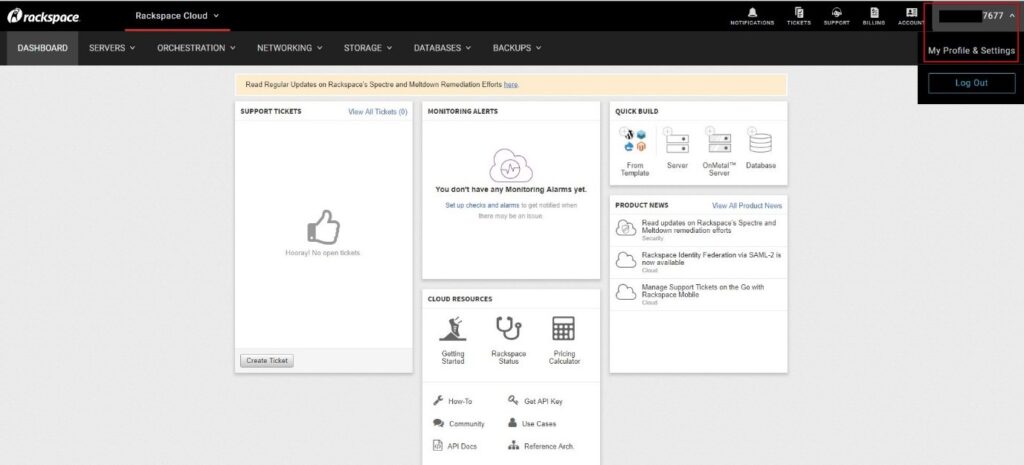
Security and Compliance: Rackspace Technology offers security solutions tailored to meet regulatory standards such as HIPAA and GDPR. Its security features include encryption and access controls to ensure compliance and safeguard sensitive data.
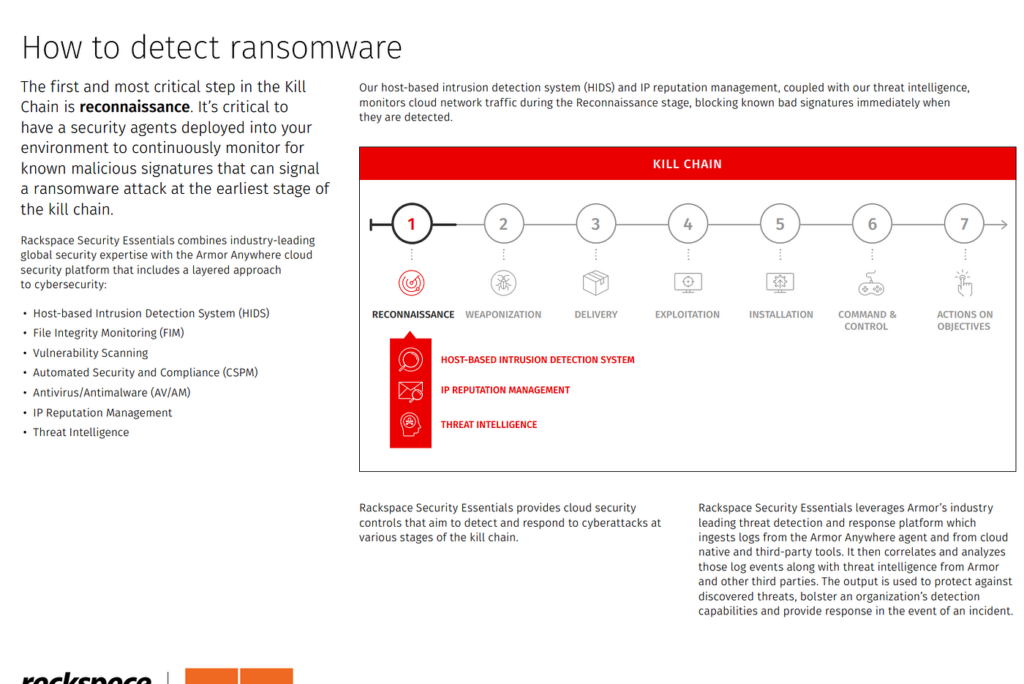
Multi-Cloud Management: Rackspace Technology allows companies to manage workloads across different cloud providers like AWS, Azure, and Google Cloud. This service enables businesses to optimize performance and cost efficiency while benefiting from the specific strengths of each provider.

Backup and Disaster Recovery: Rackspace Technology provides automated backup and disaster recovery solutions to help ensure business continuity. Their disaster recovery services quickly restore systems in case of outages or data loss, offering flexible options for data backup, including offsite storage and rapid recovery.
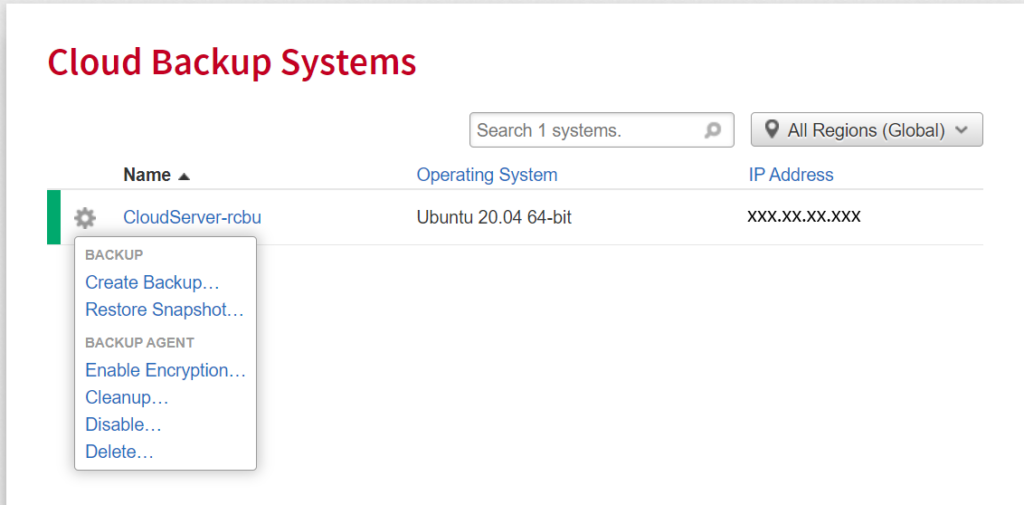
Performance Monitoring: Rackspace Technology offers real-time monitoring and observability tools through partnerships like its alliance with Datadog. These tools provide businesses with insights into the health and performance of their cloud infrastructure, helping to identify potential bottlenecks and optimize resource usage.
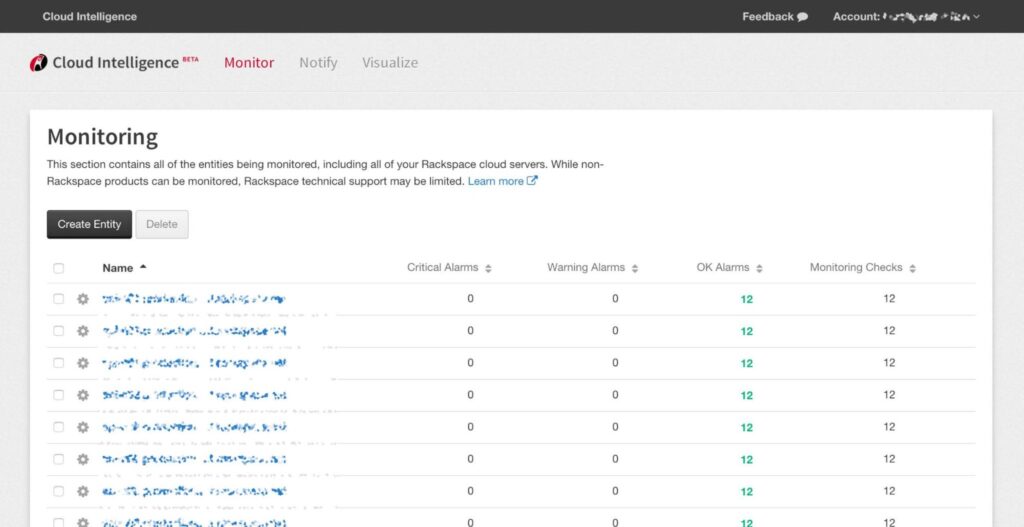
User Access Control: With role-based access control panels, Rackspace Technology enables businesses to manage and specify which users have access to certain cloud services and operations. This helps enhance security by restricting access to specific roles, ensuring that only authorized personnel can perform actions such as managing databases or expanding network capacities.
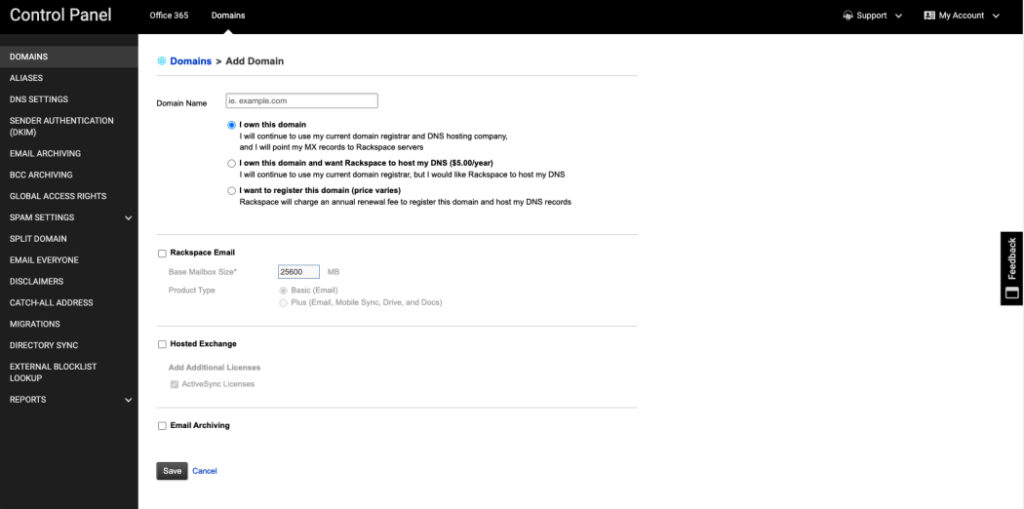
Rackspace Technology Standout Features
Dedicated Account Teams: Rackspace Technology offers dedicated email account teams for certain services, ensuring consistent support from individuals who become familiar with a business’s specific setup. This personalized service, which includes dedicated architects or account managers, addresses specific business needs and ensure ongoing success.
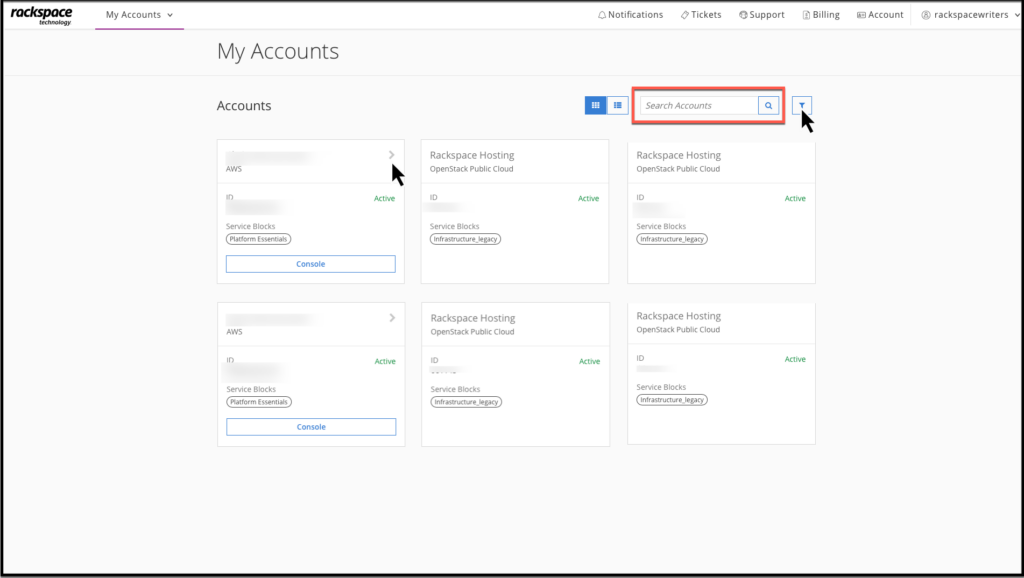
Hybrid Cloud Expertise: Rackspace Technology is recognized for its expertise in multi-cloud and hybrid cloud environments. It offers solutions that allow businesses to blend public and private clouds effectively. This flexibility makes Rackspace Technology stand out for organizations with diverse infrastructure needs, enabling seamless management across different platforms.
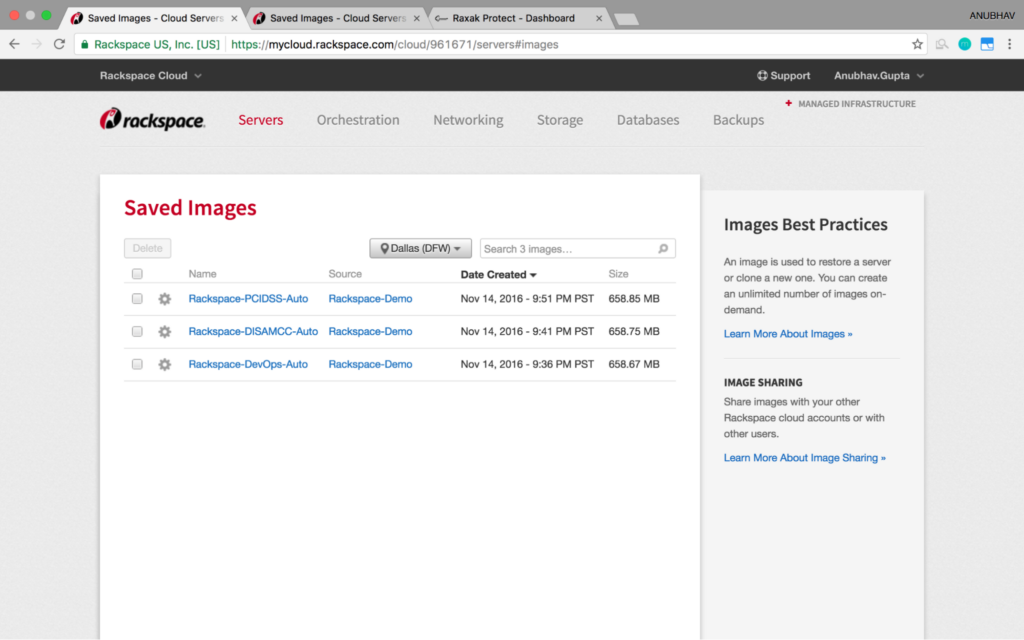
Ease of Use
Rackspace Technology can be more challenging to use compared to some cloud-native competitors due to the breadth of its managed services. The platform’s complexity stems from its support for multi-cloud and hybrid environments, which often require expert guidance for businesses to fully leverage.
While Rackspace Technology provides a user-friendly interface with unified management tools, its comprehensive services, including cloud migration, DevOps, and security solutions, may demand a steeper learning curve for businesses lacking extensive IT experience.
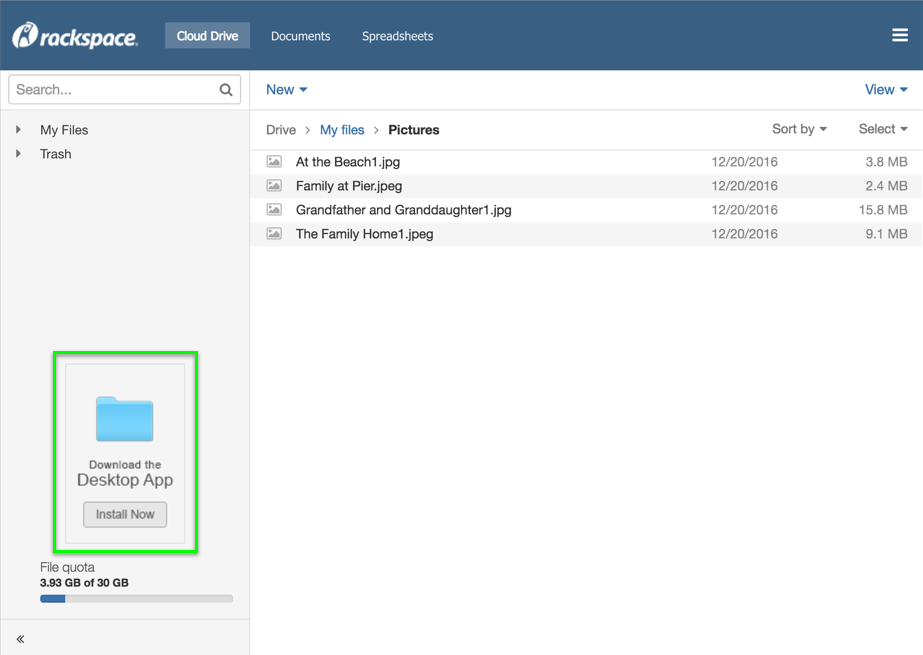
Onboarding
Onboarding with Rackspace Technology ensures that new users receive full support through training sessions and detailed guides.
The process includes hands-on assistance, which is tailored to the specific needs of each client, helping businesses get the most out of their cloud infrastructure.
However, due to the hands-on nature of this support and the complexity of integrating services like migrations or private cloud setups, the onboarding process may take longer than more self-service-oriented platforms.
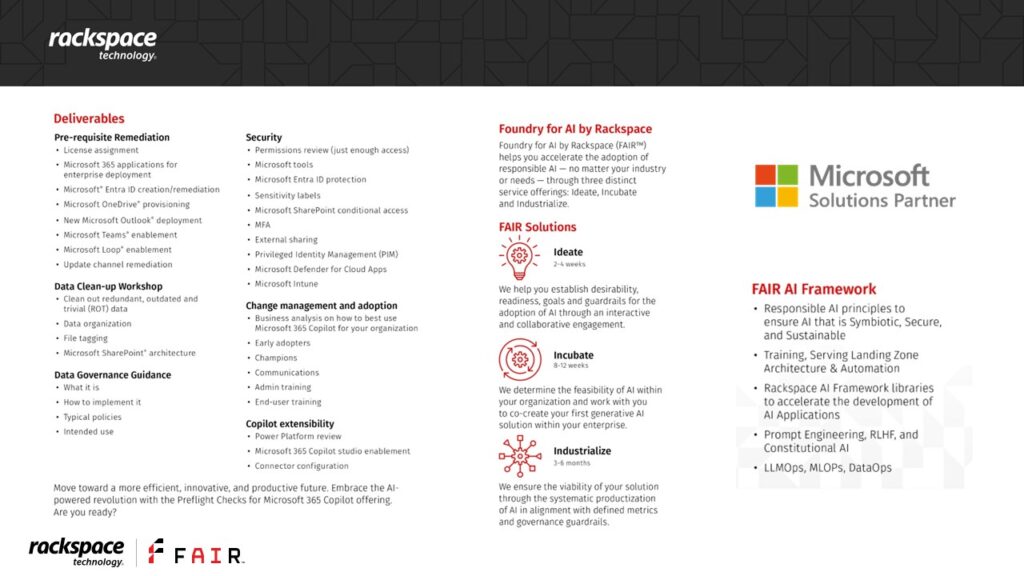
Customer Support
Rackspace Technology offers customer support through multiple channels, including 24/7 phone support, ticket-based support, and live chat. Users also have access to an advanced knowledge base for self-service support, and the platform provides a real-time status page that keeps users updated on service outages or maintenance. Rackspace Technology continuously gathers customer feedback through various channels and focuses on platform improvements based on user needs.
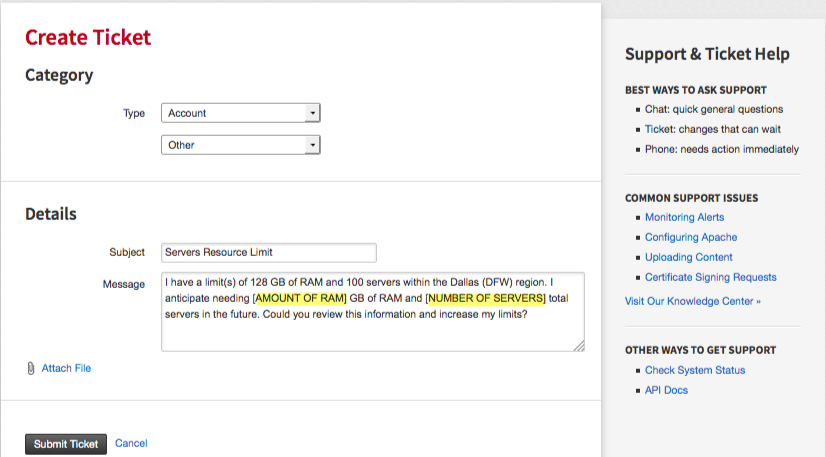
Integrations
Rackspace Technology integrates natively with AWS, Microsoft Azure, Google Cloud, VMware, Oracle, SAP, and Kubernetes. It also offers additional integration options for applications through its API, allowing businesses to build custom connections.
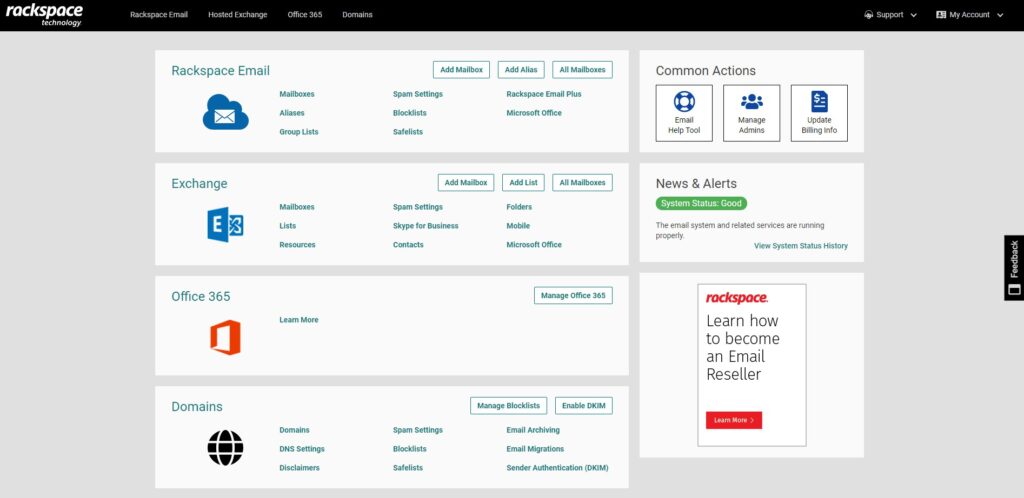
Value for Money
Rackspace Technology does not list pricing on its website. Rather, interested parties should contact the sales department for further information.
Overall, the software is on the higher end of the pricing spectrum. Users recieve charges based on their specific needs and requirements, which can increase pricing substantially, depending on their unique situation.
Keep in mind that active cloud servers are charged, regardless of use. Rackspace Technology only charges for outbound bandwidth.
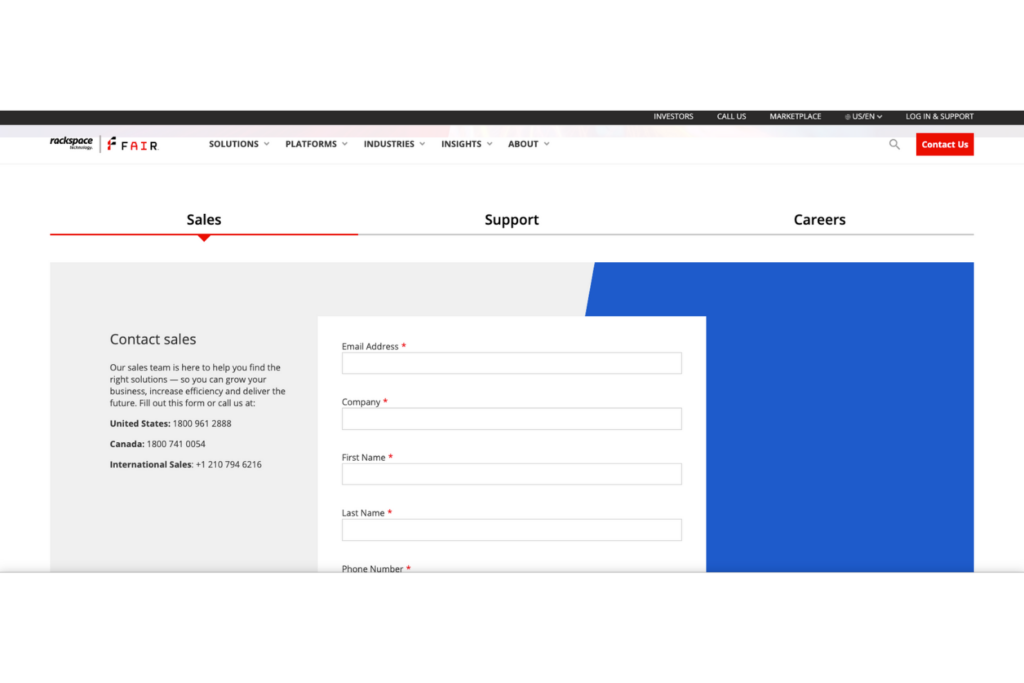
Product Specifications
| Feature | Rackspace Technology |
| Cloud Infrastructure Management | ✅ |
| Multi-Cloud Support | ✅ |
| Public Cloud Integration | ✅ |
| Private Cloud Solutions | ✅ |
| Hybrid Cloud Support | ✅ |
| Performance Monitoring | ✅ |
| Automated Backups | ✅ |
| Disaster Recovery | ✅ |
| Role-Based Access Control | ✅ |
| Real-Time Analytics | ✅ |
| AI-Powered Resource Allocation | ❌ |
| 24/7 Customer Support | ✅ |
| Mobile App | ❌ |
| Developer API Access | ✅ |
| Multi-Factor Authentication | ✅ |
| Auto Scaling | ✅ |
| Native Kubernetes Integration | ✅ |
| Data Migration Tools | ✅ |
| Single-Tenant Dedicated Hosting | ✅ |
| Edge Computing | ❌ |
| Serverless Computing | ❌ |
| SLA Uptime Guarantee | ✅ |
| Integrated DevOps Tools | ✅ |
| Compliance Auditing | ✅ |
| Advanced Machine Learning Tools | ❌ |
Rackspace Technology Alternatives
If you’re looking for alternative cloud service options to Rackspace Technology, here are a few worth checking out:
- AWS (Amazon Web Services): Known for its rapid innovation and vast array of cloud services, AWS offers more flexibility and customization options for web hosting.
- Google Cloud Platform: Google Cloud excels in AI and machine learning capabilities, making it a great choice for businesses focused on advanced data analytics.
- Microsoft Azure: Azure integrates seamlessly with Microsoft’s suite of enterprise tools, providing a strong advantage for organizations already using Microsoft products.
- IBM Cloud: IBM Cloud is a good option for companies with a focus on hybrid cloud and security, offering specialized tools for enterprises needing tighter control over their infrastructure.
Rackspace Technology Frequently Asked Questions
What is Rackspace Technology?
Rackspace Technology is a cloud service provider that offers managed cloud solutions across public, private, and hybrid environments. It helps businesses manage their cloud infrastructure, ensuring security, compliance, and performance optimization. Rackspace specializes in providing hands-on support and multi-cloud expertise for organizations with complex IT needs.
Is there a mobile app for Rackspace Technology?
No, Rackspace Technology does not currently offer a mobile app. However, businesses can access its services through its web-based platform. Management and monitoring of cloud infrastructure are handled through the desktop interface and other integrations.
Is Rackspace Technology HIPAA compliant?
Yes, Rackspace Technology offers HIPAA-compliant cloud services for healthcare organizations. It provides the necessary tools and controls to protect patient data, ensuring businesses meet the regulatory requirements for healthcare data security. This includes encryption, access controls, and regular audits.
Is Rackspace Technology SOC 2 compliant?
Yes, Rackspace Technology is SOC 2 compliant. This means it adheres to strict standards for security, availability, processing integrity, confidentiality, and privacy. Rackspace undergoes regular audits to ensure it meets these industry-standard requirements.
Is Rackspace Technology secure?
Yes, Rackspace Technology provides a secure cloud infrastructure with features like encryption, multi-factor authentication, and firewalls. The company also offers tools for monitoring and responding to security incidents. Additionally, its managed services include security experts who help businesses mitigate risks.
Is Rackspace Technology FedRAMP certified?
Yes, Rackspace Technology is FedRAMP certified, which means it meets the rigorous security requirements for cloud services used by federal agencies. This certification ensures that Rackspace adheres to strict government standards for data protection and privacy.
Is Rackspace Technology GDPR compliant?
Yes, Rackspace Technology is GDPR compliant. It provides tools and resources to help businesses comply with the General Data Protection Regulation, including data encryption, data residency options, and access controls. Rackspace supports European organizations in meeting their data privacy obligations.
Is Rackspace Technology secure for financial services?
Yes, Rackspace Technology is commonly used by financial institutions that require strong security and compliance. It offers specialized services to help businesses in the financial sector meet regulatory requirements like PCI DSS. Its security features and compliance tools make it a trusted choice for the financial industry.
Rackspace Technology Company Overview & History
Rackspace Technology is a managed cloud services provider that helps businesses optimize their cloud infrastructure across public, private, and hybrid environments.
Headquartered in San Antonio, Texas, the company employs over 5,800 people globally. Rackspace Technology is recognized for its hands-on approach to cloud management and its strong partnerships with major cloud providers like AWS, Google Cloud, and Microsoft Azure. The company also offers extensive security and compliance solutions, making it a trusted partner for industries such as healthcare, financial services, and government.
Rackspace Technology was publicly traded under the ticker symbol “RXT” on the NASDAQ. Its market capitalization has fluctuated, with recent estimates placing it around $341 million. Despite challenges in stock performance, Rackspace Technology remains a notable player in the cloud services industry. Rackspace Technology’s client portfolio includes prominent organizations such as Liberty Mutual and Under Armour, underscoring its presence in enterprise sectors.
Rackspace Technology Major Milestones
- 1998: Rackspace Technology was founded in San Antonio, Texas.
- 2008: Rackspace Technology went public on the New York Stock Exchange (NYSE).
- 2016: The company was taken private by Apollo Global Management in a $4.3 billion deal.
- 2020: Rackspace Technology returned to the public market, trading on NASDAQ under "RXT."
- 2021: Rackspace Technology reached annual revenue of over $3 billion.
Want to learn more about Rackspace Technology? Check out their site for additional information.
Pricing upon request
Free consultation available
What’s Next?
Boost your SaaS growth and leadership skills. Subscribe to our newsletter.















